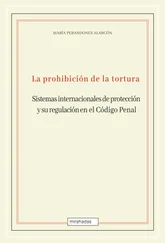Pedro de Alarcón - El Capitán Veneno
Здесь есть возможность читать онлайн «Pedro de Alarcón - El Capitán Veneno» — ознакомительный отрывок электронной книги совершенно бесплатно, а после прочтения отрывка купить полную версию. В некоторых случаях можно слушать аудио, скачать через торрент в формате fb2 и присутствует краткое содержание. Жанр: foreign_antique, foreign_prose, на испанском языке. Описание произведения, (предисловие) а так же отзывы посетителей доступны на портале библиотеки ЛибКат.
- Название:El Capitán Veneno
- Автор:
- Жанр:
- Год:неизвестен
- ISBN:нет данных
- Рейтинг книги:3 / 5. Голосов: 1
-
Избранное:Добавить в избранное
- Отзывы:
-
Ваша оценка:
- 60
- 1
- 2
- 3
- 4
- 5
El Capitán Veneno: краткое содержание, описание и аннотация
Предлагаем к чтению аннотацию, описание, краткое содержание или предисловие (зависит от того, что написал сам автор книги «El Capitán Veneno»). Если вы не нашли необходимую информацию о книге — напишите в комментариях, мы постараемся отыскать её.
El Capitán Veneno — читать онлайн ознакомительный отрывок
Ниже представлен текст книги, разбитый по страницам. Система сохранения места последней прочитанной страницы, позволяет с удобством читать онлайн бесплатно книгу «El Capitán Veneno», без необходимости каждый раз заново искать на чём Вы остановились. Поставьте закладку, и сможете в любой момент перейти на страницу, на которой закончили чтение.
Интервал:
Закладка:
101
¡vaya si pesa…! my but you are heavy! cf. ¡Vaya que susto me has dado! Oh, what a scare you gave me! Una carta de tu tío, y ¡vaya si es gorda! A letter from your uncle, and my but it's big! Alarcón in Moros y Cristianos . ¡Vaya si me lo llevaré! Surely I'll take it ( the secret ) to the grave with me! Moros y Cristianos. Novelas Cortas , Giese ed., p. 109.
102
amostazarse: from mostaza, mustard : cf. pepper , ginger , in familiar parlance.
103
tiráronle un tiro, they shot her a shot : cf. English "killed him dead"; poor rhetoric again.
104
perdone: asking him to pardon her for frightening her mother, seems far-fetched, a false note; but it does inform the captain of the facts in the case; queis omitted here as often with words like suplicar, pedir, rogar, etc.
105
os: this second person plural is not always familiar.
106
hazmerreír, make-me-laugh , laughing-stock ; a whole sentence become a word, like hand-me-down for ready-made and like Hoosier (if from "Who-is-yer") and forget-me-not . Spanish has also corre-ve-i-dile, tattle-tale ; va-i-ven, pendulum motion ; gana-pierde, give-away (at checkers).
107
faltaba= faltaría: a common idiomatic use of the imperfect indicative for the conditional.
108
mismo: in mañana mismo, ahora mismo, the adverb is used as a neuter noun.
109
después de acostada, after you are in bed : very common usage; no suppressed word need be assumed. The form has become idiomatic. Cf. the English usage of certain localities: he wants in , he wants out , for he wants to get in , he wants to get out , where we no longer think of the omitted verb.
110
tila con flor de azahar, lime tea and orange flower , a soothing concoction for the nerves.
111
aunque Dios no quiera, even though God be unwilling : an allusion to the usual phrase "God willing", Deo volente . Lorenzo Dow said: "I shall preach, God willing; no, I will anyway".
112
Angustias: he hasn't heard her name yet; not in the story.
113
número…: the dots, puntos suspensivos, are read as tal, so-and-so .
114
Veneno , Venom : about like Spitfire , if it were for a woman.
115
el enviar, the sending : infinitives and past participles are an abundant source of nouns in Spanish.
116
Buenos días, Good day : much more usual at meeting or passing, and by day, than at leaving and at night, although it was of course, by this time, about four o'clock in the morning.
117
de demonio, devilish : this is the nearest Rosa comes to oaths. In the Diario , Alarcón speaks of the mil votos y ternos, thousand oaths and curses , of the soldiers.
118
de punta, on end : a fine example of deused to make an adverb; we use of similarly for time ( of a morning, of Sundays ); Spanish uses defor adverbs of time, place, or manner. Six of the clock, of necessity, born of woman, of a truth, said of old, live of milk alone, all of a sudden , in English are of a vanishing type.
119
cervata: usually only masculine cervato, but Rosa follows the general principle. Her háceme temblaris rather provincial for me hace.
120
como el dolor, as well as sorrow : our style would be rather sorrow as well as happiness . It is notable how often the order is reversed in Spanish, e.g. antes como después, before as afterwards , tarde o temprano, late or soon ( i. e. sooner or later ).
121
hallábase: Alarcón, as well as Rosa, puts the pronoun last.
122
A éste le había dado… por callar, He had taken to silence, he didn't feel like talking : dar(impersonal) for some other verb as often; cf. le dio por ahí, he (or she ) took to that .
123
Cristo: a strong oath. Usually Cristois covered by some innocent word beginning with the same sound, as we shall often see. Captain Veneno later says por Jesucristo vivo, 135, 20.
124
balazo de la frente, bullet wound in his forehead : in the Diario I, 168, Alarcón tells of a captive Moor who had a terrible scar in his forehead: nos mostró una larga cicatriz que le atravesaba toda la frente. ¿Cómo no moriste? – La bala se deslizó sobre el hueso, – respondió, He showed us a long scar which crossed his whole forehead. Why didn't it kill you? – The ball glanced on the bone, he answered .
125
por estar la tibia muy destrozada, because the tibia was shattered . The subject of the infinitive is the post-placed noun tibia.
126
a solas, alone, privately : as feminine -menteis universal for the adverb ending, and as cosais so often understood, it has come about that the fashion is to make adverbial expressions with a feminine form: cf. apenas, a duras penas, a ciegas; and even where the feminine is illogical, as in a ojos vistas, a pie juntillas, a ojos cegarritas: two constructions are confused, the adverb from a noun: a ojos, a pie, a la vista, and the adverb from an adjective.
127
tres Marías: reference to the three Marys at the crucifixion, Matthew 27:56. The phrase has become common with the legend that the three Marys came to Provence together.
128
¡cáspita…!and (20) ¡caracoles…!: note the disguised [ encubierto] oath, how it starts as though to say Cristoand switches off to ca-something, any word beginning with ca-( canastos, caminos, canales, calles, culebrines, etc.), or even caalone, or que. The commonest is caramba. In the Diario I, p. 32, and elsewhere several times, Alarcón speaks of the great amount of swearing: Valiéndose de distintas interjecciones y muletillas, usando de diverso género de oratorio, declaman, votan, refieren, arguyan, se insultan, se reconcilian… Using different interjections and gags, using a varied kind of oratory, they declaim, swear, quote, argue, insult each other, make up … Cf. our disguised forms for Jesus: By Joe , by George , Gewhiz , Jerusalem , Jehosaphat , Jimminy , and many more.
Читать дальшеИнтервал:
Закладка:
Похожие книги на «El Capitán Veneno»
Представляем Вашему вниманию похожие книги на «El Capitán Veneno» списком для выбора. Мы отобрали схожую по названию и смыслу литературу в надежде предоставить читателям больше вариантов отыскать новые, интересные, ещё непрочитанные произведения.
Обсуждение, отзывы о книге «El Capitán Veneno» и просто собственные мнения читателей. Оставьте ваши комментарии, напишите, что Вы думаете о произведении, его смысле или главных героях. Укажите что конкретно понравилось, а что нет, и почему Вы так считаете.












